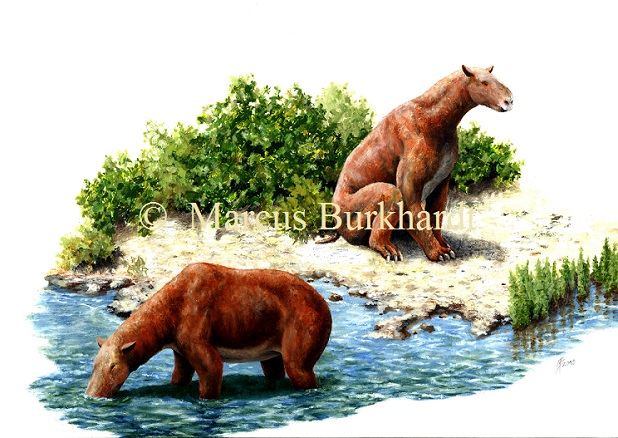
Moropus elatus (Chalicotheriidae), Miocene, North America
Oil paint on paper, 2019
42 x 29,5 cm

Moropus elatus (Chalicotheriidae), Miocene, North America
Oil paint on paper, 2019
42 x 29,5 cm

Summary of all fossil Alcelaphini-genera with selected species
Coloured pencil drawings, digitally composed; 2018
The reconstructions were made with kindly support by paleontologist Dr. Faysal Bibi from the Museum for Natural History Berlin.
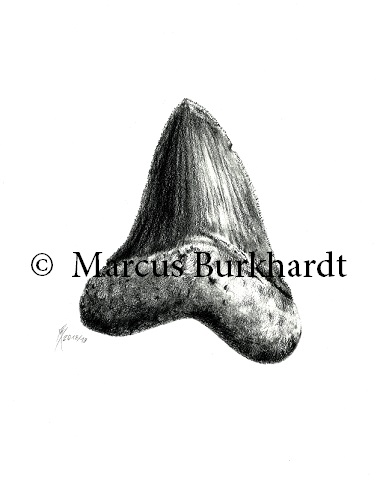
Carcharocles megalodon (Otodontidae), Miocene – Pliocene, worldwide occurrence
Pencil, 2018/19
32 x 24 cm
The picture was drawn from a petrified specimen at the natural history museum in Waldenburg/Saxony.
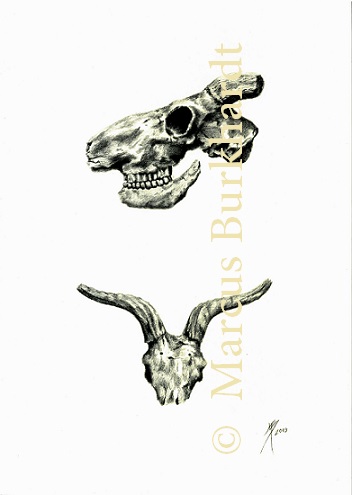 .
.
Menelikia lyrocera (Bovidae), Pliocene – Pleistocene, East Africa
This medium-sized antelope had horns with transverse ridges and was possibly similar to today’s Nile lechwe / Mrs Gray’s lechwe (Kobus megaceros) in its ecology.
Pencil, 2019
29,5 x 21 cm
The picture was drawn from two exhibits at the National Museum of Natural History (MNHN) in Paris.
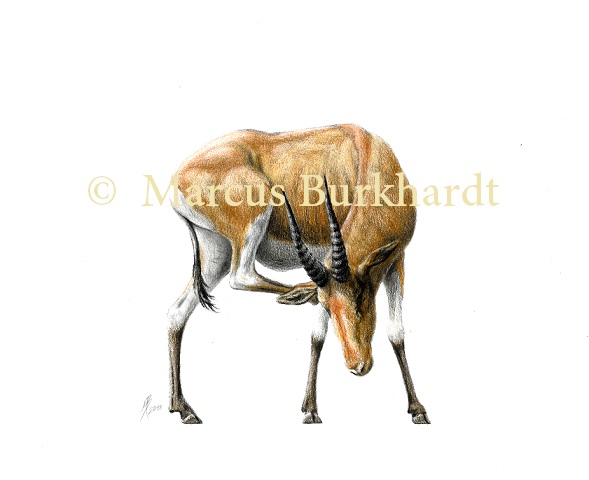
Awashia suwai (Bovidae), Late Pliocene, Ethiopia
A. suwai was found at the Matabaietu formation which is located at the eponymous river Awash in Ethiopia. It lived there about 2,5 million years ago together with hominids like Australopithecus garhi and maybe Paranthropus aethiopicus.
Coloured pencil, 2018
30 x 24 cm
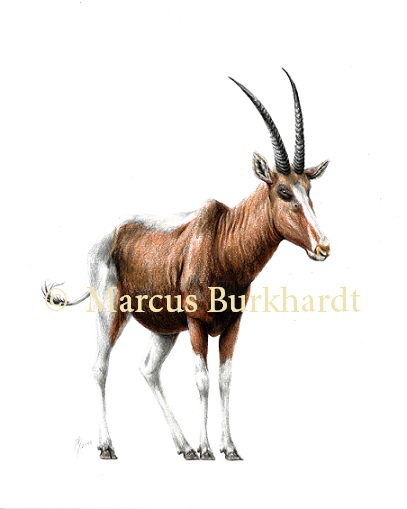
Damalops palaeindicus (Bovidae), Late Pliocene, South Asia
This is a notably species in two aspects: on the one hand it is the only known alcelaphine outside of Africa, on the other hand its horn form is very simple compared to other Alcelaphini. D. palaeindicus lived during the Pinjor formation about 2,5 million years ago in the area of today’s Siwaliks (southern Himalayas) in India. There are also remains from the Republic of Tajikistan.
Coloured pencil, 2018
30 x 24 cm
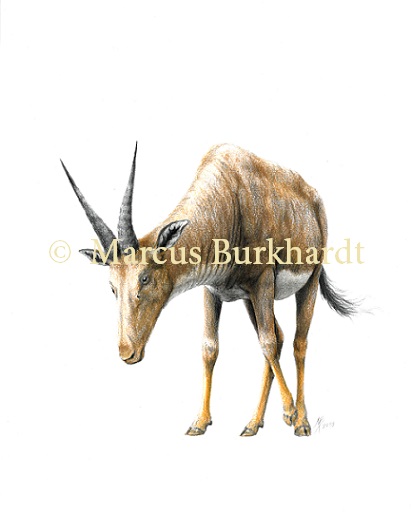
Damalborea elisabethae (Bovidae), Middle Pliocene, East Africa
This prehistoric alcelaphine was discovered at the Hadar-Formation in Ethiopia. It lived there about 3,3 million years ago together amongst others with the hominin Australopithecus afarensis. It was named after paleontologist Elisabeth Vrba.
Coloured pencil, 2018
30 x 24 cm
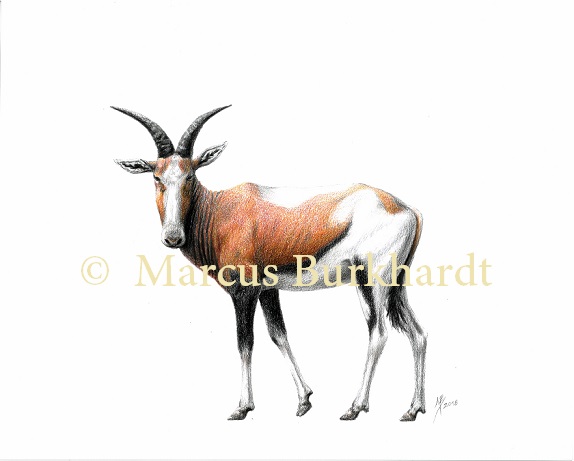
Damalacra neanica (Bovidae), Early Pliocene, South Africa
An alcelaphine that lived about 5,3 – 3,6 million years ago. Probably their feeding niches range from browsers to mixed feeders. D. neanica was about as large as today’s blesbok (Damaliscus pygargus phillipsi).
Coloured pencil, 2018
30 x 24 cm